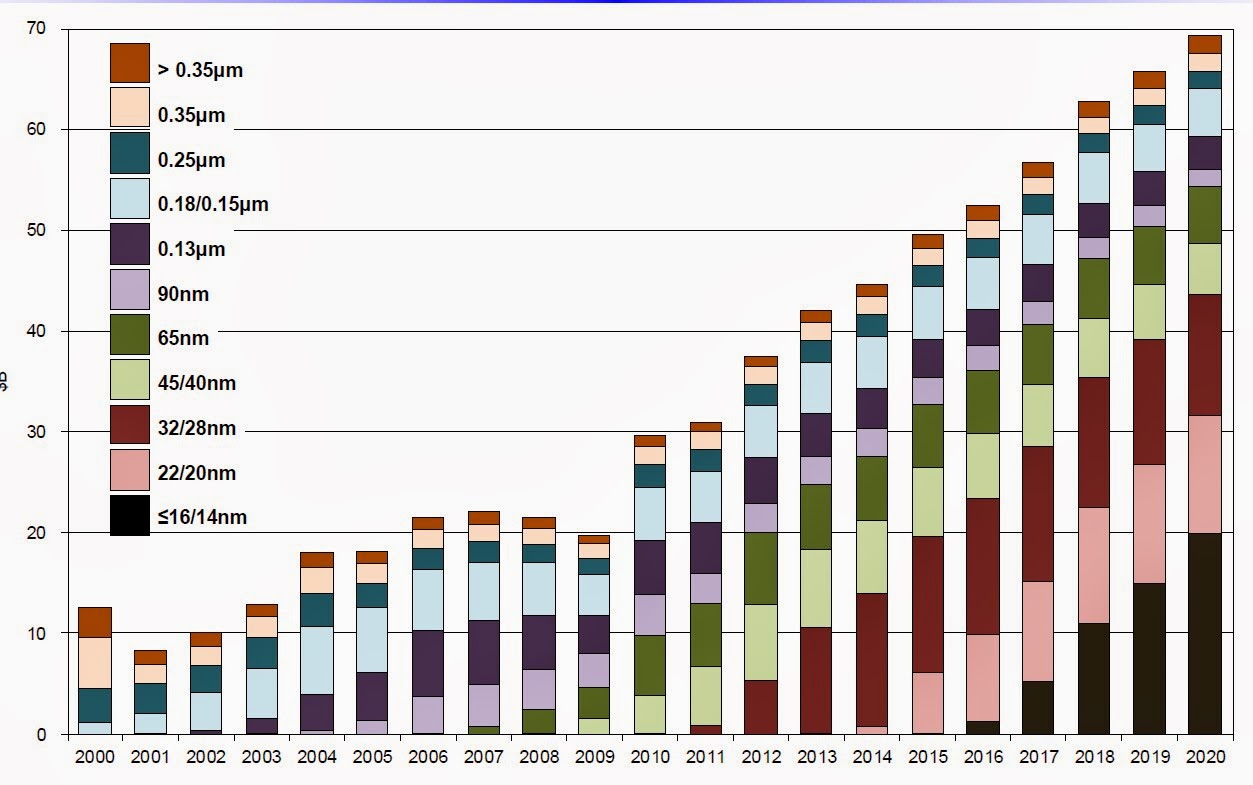IBM
IBM fellow Jon
Casey examined “System Scaling Technologies and Opportunities for Future IT
Workloads and Systems” He notes that silicon performance advancement is becoming
more challenging as scaling is becoming more costly and that we need to look
beyond CMOS for cost effective technology solutions. He proposes integrated
co-development of Silicon and packaging solutions to achieve new technologies
with superior cost/performance metrics.
Volumetric scaling will be critical to future
performance enablement
– Tightly
coupled modules and components– 3D stacking and interposer integration
Casey
examined the current state of interposer substrates and showed the following
comparison:
Linx
Linx consultants
looked at “Chemicals and Materials in Semiconductor Devices” . IFTLE notes that
an examination of materials suppliers shows that while chip production is
moving out of Japan due to cost, Japan still has quite a few of the major
materials suppliers on its shores.

Linx lists 3DIC
among the major 5 challenges for the IC industry in the future.
Like many
other prognosticators, Linx points to the cost of 450mm fabs as the main cause
of the ever shrinking customer base .
IMEC
An Steegen,
Sr VP, IMEC examined “Scaling Beyond 10nm”. She offered the following roadmaps
for 3D applications and TSV dimensions.
and the following CoO Analysis for their
3D process flow:
IHS
IHS examined
semiconductors in the electronics value chain.
An unexpected piece of data is that consumers are spending more on
hardware (HW) than content i.e.:
IBS
Our friends
at Int Business Strategies (IBS) who in the past have contributed significant
data to IFTLE arguments that 3DIC makes economic sense in light of the other
scaling options, addressed They indicated that growth in 2013 was mainly due to
an increase on memory pricing. They expect Capex decreases in 2014 (small
decline) and 2015 (large decline).
While there
is uncertainty in the timing for scaleup of 20 and 16 nodes, by 2020 they
expect greater than ½ semi sales will come from 32nm and below.
They also
conclude that low power and low cost will dominate the application space for
32nm or less devices.
They continue
to predict that cost/gate will no longer be a cost driver.
For all the latest on 3DIC and
advanced packaging stay linked to IFTLE……………









No comments:
Post a Comment